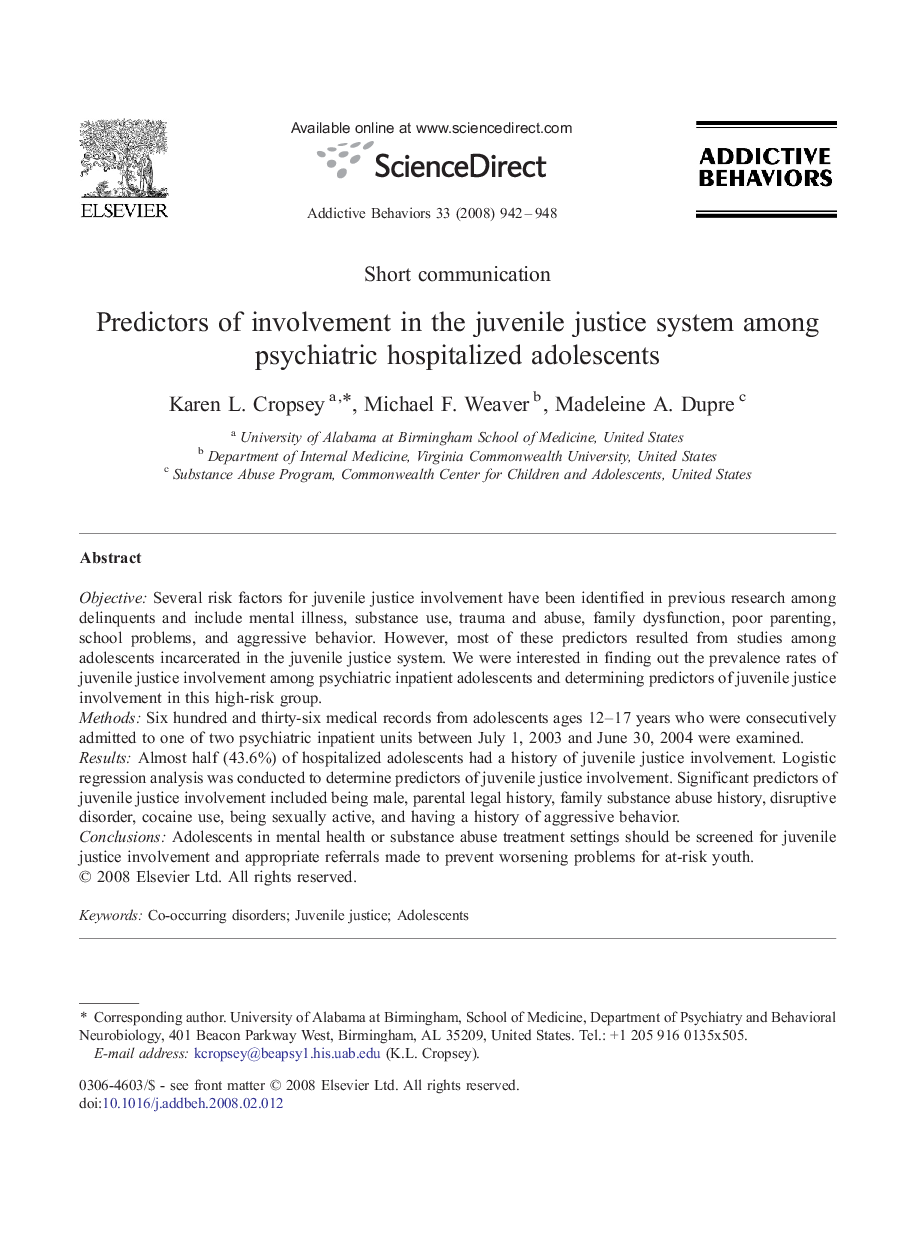| Article ID | Journal | Published Year | Pages | File Type |
|---|---|---|---|---|
| 900324 | Addictive Behaviors | 2008 | 7 Pages |
ObjectiveSeveral risk factors for juvenile justice involvement have been identified in previous research among delinquents and include mental illness, substance use, trauma and abuse, family dysfunction, poor parenting, school problems, and aggressive behavior. However, most of these predictors resulted from studies among adolescents incarcerated in the juvenile justice system. We were interested in finding out the prevalence rates of juvenile justice involvement among psychiatric inpatient adolescents and determining predictors of juvenile justice involvement in this high-risk group.MethodsSix hundred and thirty-six medical records from adolescents ages 12–17 years who were consecutively admitted to one of two psychiatric inpatient units between July 1, 2003 and June 30, 2004 were examined.ResultsAlmost half (43.6%) of hospitalized adolescents had a history of juvenile justice involvement. Logistic regression analysis was conducted to determine predictors of juvenile justice involvement. Significant predictors of juvenile justice involvement included being male, parental legal history, family substance abuse history, disruptive disorder, cocaine use, being sexually active, and having a history of aggressive behavior.ConclusionsAdolescents in mental health or substance abuse treatment settings should be screened for juvenile justice involvement and appropriate referrals made to prevent worsening problems for at-risk youth.
